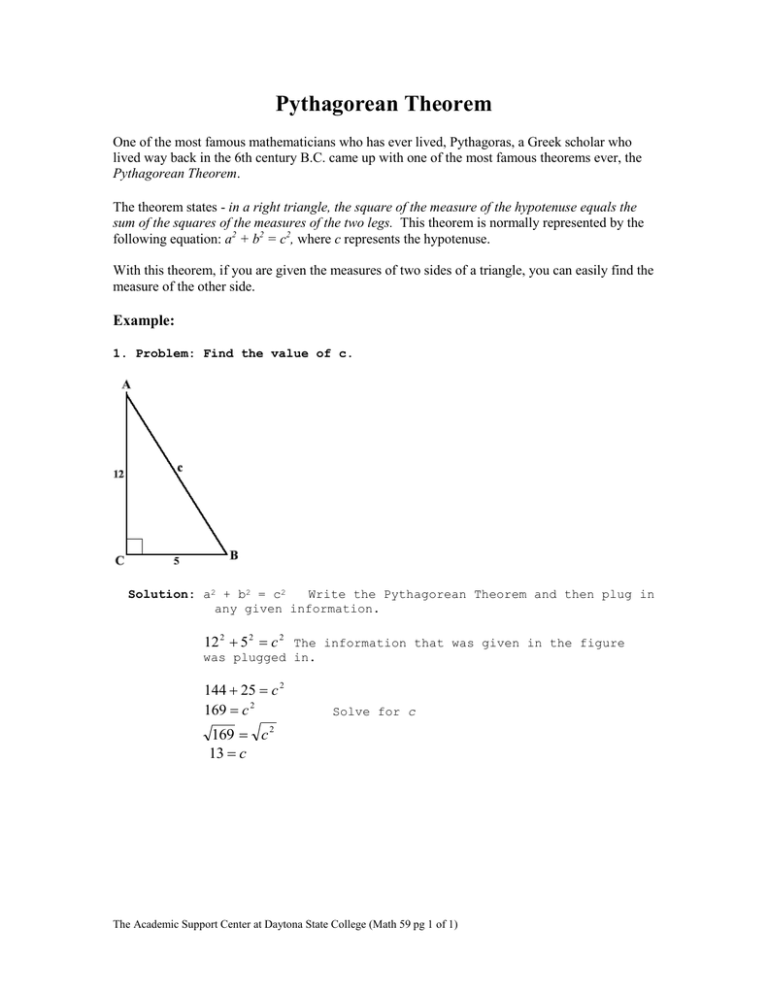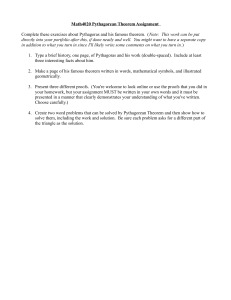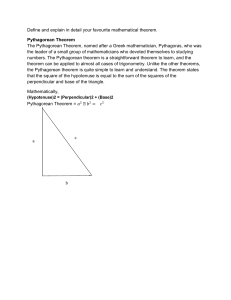Pythagorean Theorem
advertisement

Pythagorean Theorem One of the most famous mathematicians who has ever lived, Pythagoras, a Greek scholar who lived way back in the 6th century B.C. came up with one of the most famous theorems ever, the Pythagorean Theorem. The theorem states - in a right triangle, the square of the measure of the hypotenuse equals the sum of the squares of the measures of the two legs. This theorem is normally represented by the following equation: a2 + b2 = c2, where c represents the hypotenuse. With this theorem, if you are given the measures of two sides of a triangle, you can easily find the measure of the other side. Example: 1. Problem: Find the value of c. Solution: a2 + b2 = c2 Write the Pythagorean Theorem and then plug in any given information. 12 2 5 2 c 2 The information that was given in the figure was plugged in. 144 25 c 2 169 c 2 Solve for c 169 c 2 13 c The Academic Support Center at Daytona State College (Math 59 pg 1 of 1)





